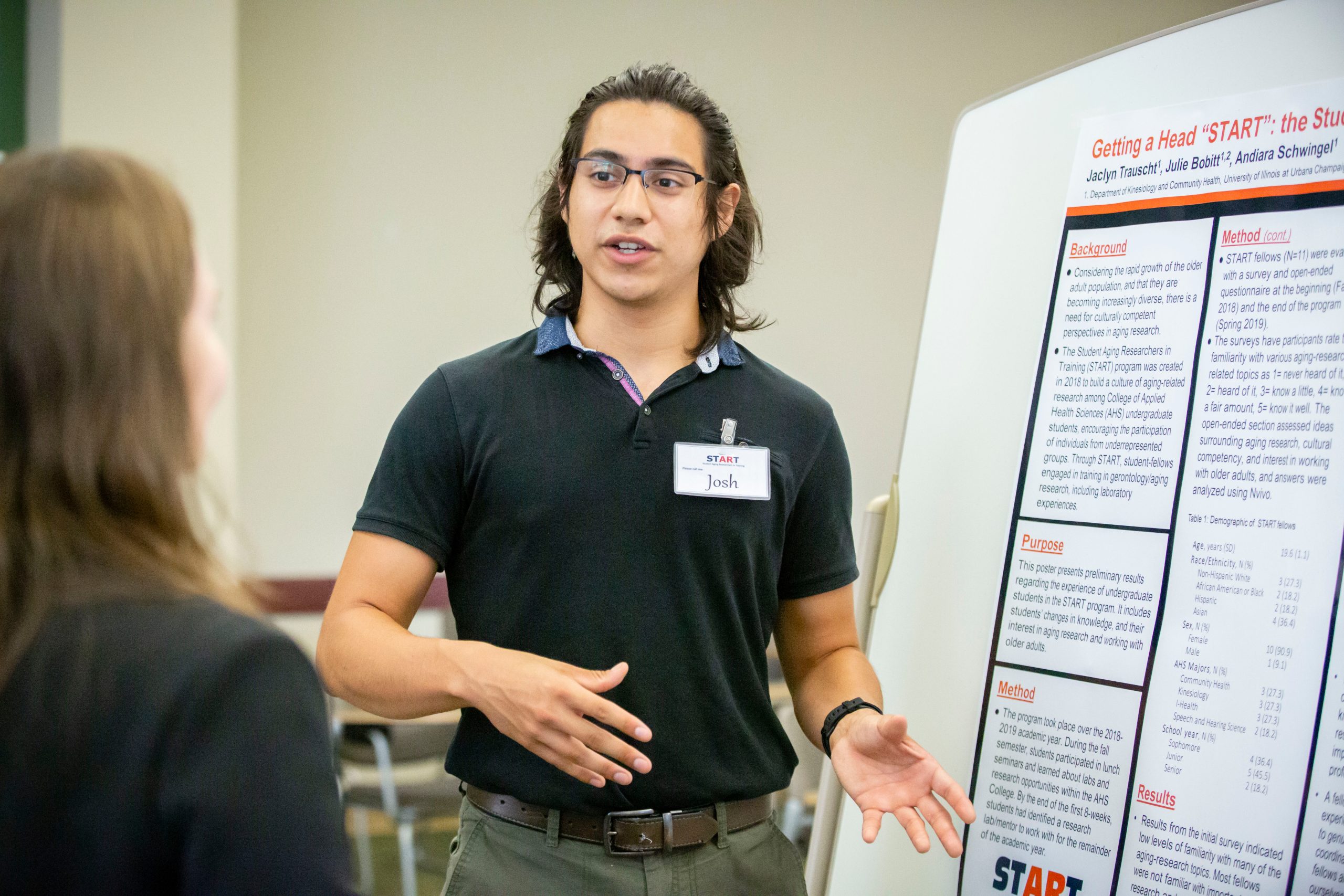Competencies are a combination of identified and observable knowledge, skills, abilities and behaviors, as well as attributes or traits essential to success in any role. They are the foundation from which supervisors and managers build and enhance skills, knowledge, and abilities for effective performance. The Library Supervisor Competency Model provides a framework to help individuals develop key competencies to support their success and the success of their teams, support the Library’s strategic priorities, and rise to meet new challenges through continual learning.
 Interpersonal Skills
Interpersonal Skills

Communicates clearly and effectively across various modes and audiences
- Conveys information effectively
- Adapts communication style for different audiences and modes (i.e., face-to-face, digital, etc.)
- Strives to communicate in universally accessible ways (i.e., being mindful of a breadth of learning and information processing styles, following accessibility best practices, etc.)
Proactively and consistently helps team members improve performance, develop in their careers, and grow
- Defines and measures performance
- Ascertains individual career interests and talents
- Empowers others to learn new skills, gain knowledge, and improve performance
- Holds team members accountable for performance and implements course correction strategies
- Identifies relevant training and professional development opportunities
- Maintains understanding of unit needs and growth areas for matching with team member interests
Here are some recommended professional development resources:
Trust & Relationship Building
- Diversity without Division: Irshad Manji – SHRM-sponsored webinar on effective DEIA practices in the workplace centering on communication (50 min)
- The Danger of a Single Story: Chimamanda Ngozi Adichie – One of the most popular TEDTalks, on individuality and celebrating difference (20 min)
- Becoming a Trans Inclusive Library: Imara Jones – Award winning journalist presents and offers Q&A, sponsored by the Diversity Committee (90 min)
- Lending Privilege: Anjuan Simmons – Technologist and speaker discusses privilege and authentic allyship, sponsored by UI Web Conference (37 mi)
- Neurodiversity at your University Webinar – The Autism Program at UIUC webinar on making the University a safe place to disclose and be autistic (75 min)
- How to Build (and rebuild) Trust: Frances Frei – TEDTalk Trust is the foundation for everything we do. Crash course in trust: how to build it, maintain it and rebuild it (15 min)
- Racial Microgressions in Everyday Life: Dr. Derald Wing Su – Short article on how microaggressions show up in the workplace and broader society
- Microagressions: More Than Just Race: Dr. Derald Wing Su – Short article on how microaggressions can target and impact gender, sexual orientation, and other identities
Communication: Oral & Written
- Grammar Foundations: Judy Steiner-Williams – Popular, comprehensive LinkedIn Learning course on how to improve the clarity of your writing (130 min, login required)
- Learning to Write for the Web: Chris Nodder – LinkedIn Learning course covering key differences in how you write for an online audience (75 min, login required)
- Public Speaking Foundations: Laura Bergells – LinkedIn Learning course on strategies to speak confidently and effectively in front of groups (60 min, login required)
- Power of Listening: William Ury – TEDTalk explains how listening is the essential, and often overlooked, half of communication. (15 min)
Coaching
- Leaders Who Coach: Saba Imru-Mathieu – TEDTalk on what coaching really is and why it’s so important (20 min)
- The Secret to Giving Great Feedback: LeeAnn Renninger – TEDTalk by Cognitive psychologist LeeAnn Renninger shares a scientifically proven method for giving effective feedback. (5 min)
 Leadership Skills
Leadership Skills

Approaches problems, issues, and changing situations in a methodical, logical, and compassionate way, including gathering information or incorporating emerging knowledge, and calling on other resources as necessary
- Engages in continuous learning
- Tries new approaches
- Stays current on knowledge and best practices
- Manages crisis and urgent situations effectively
Makes good decisions based upon a mixture of analysis, wisdom, experience, and judgment.
- Makes timely and sound decisions
- Identifies and understands issues
- Manages internal biases to apply decision-making in a consistent, equitable, and fair way
- Prioritizes effectively based on Library and University vision and mission
Explores alternatives and different viewpoints to reach outcomes that gain acceptance from others
- Uses influencing and advocacy techniques to improve the workplace and positively impact others
- Frames issues and/or a makes a case for a position effectively
- Advocates for unit’s needs in the context of the overall organization
- De-escalates conflict
Here are some recommended professional development resources:
Negotiation & Advocacy
- Navigating Difficult Conversations: Stephen T. Bajjaly – ALISE webinar on handling interpersonal conflict and defusing tense conversations (60 min)
- Crucial Conversations book and materials – Contact training@library.illinois.edu to borrow copies of this highly recommended and cited resource
Team Leadership
- Building a Psychologically Safe Workplace: Amy Edmonson – TEDTalk by Edmondson, who is well known for her work on teams. Here she discusses the importance of building a psychologically safe workspace and some of the ways to do so. (11 min)
 Organizational Skills
Organizational Skills

Stays attuned to pertinent information and changes at every level of the organization (as applicable). Plans, organizes, and manages time well.
- Recognizes the impact of changes and proactively communicates them to those affected
- Responds in a timely and thoughtful manner
- Ensures work and/or processes are completed in an accurate, timely, and consistent way
Maintains knowledge of the Library and their own team/unit. Stays current on campus, Library-wide, technical, and procedural information.
- Follows Library guidelines when hiring and staffing a team
- Knows where to go or how to find out information about the organization
- Maintains an understanding of how bias shows up the workplace
- Stays current on necessary technical skills
- Exhibits a comprehensive procedural understanding of the Library and their team/unit
Here are some recommended professional development resources:
Attentiveness & Conscientiousness
- Getting Things Done: David Allen – LinkedIn Learning course by renowned productivity and time management expert (27 min, login required)
Library-Wide, Technical, & Procedural Understanding
- Technology Services Training Opportunities – Training is offered on a variety of software such as Skype for Business, Microsoft Office Suite, Adobe Photoshop, Illustrator, InDesign, and many more.
- WebJunction, which has a course catalog and webinar recordings comprising library-specific skills and general topics.